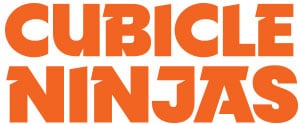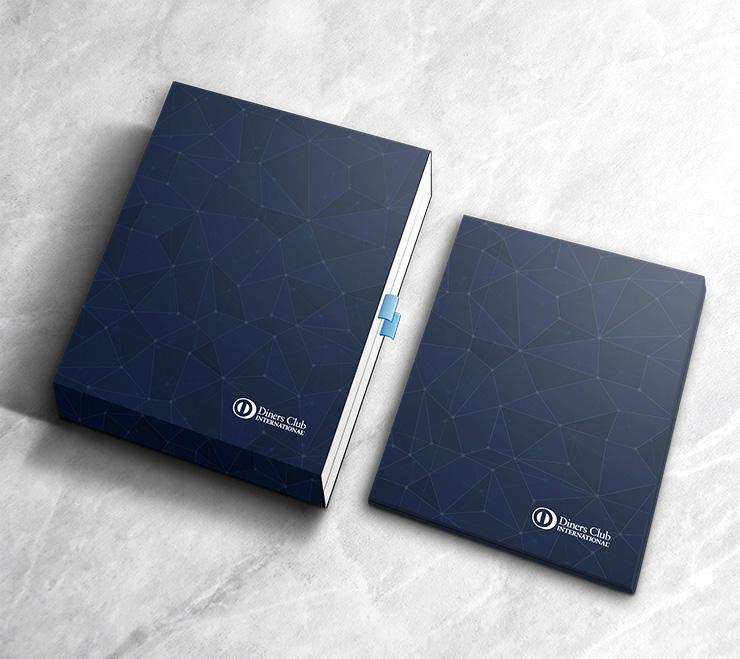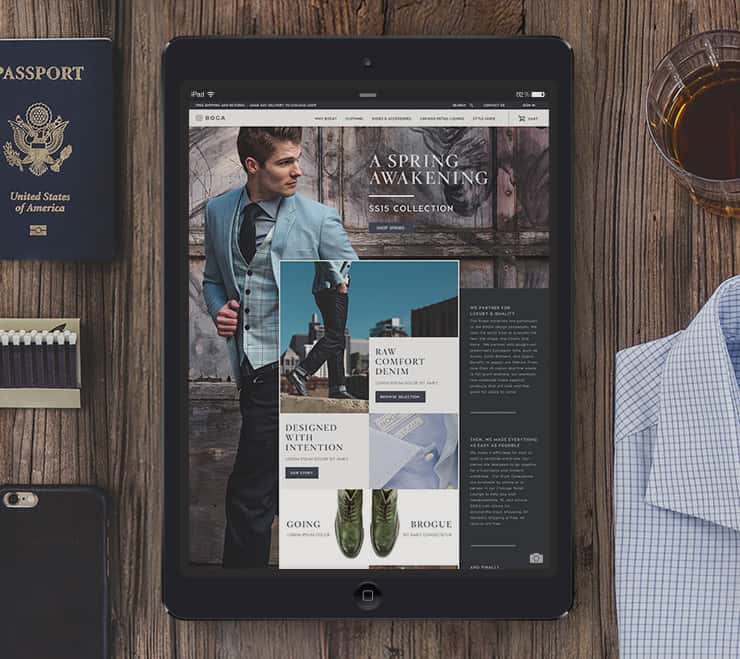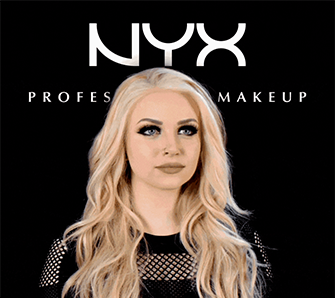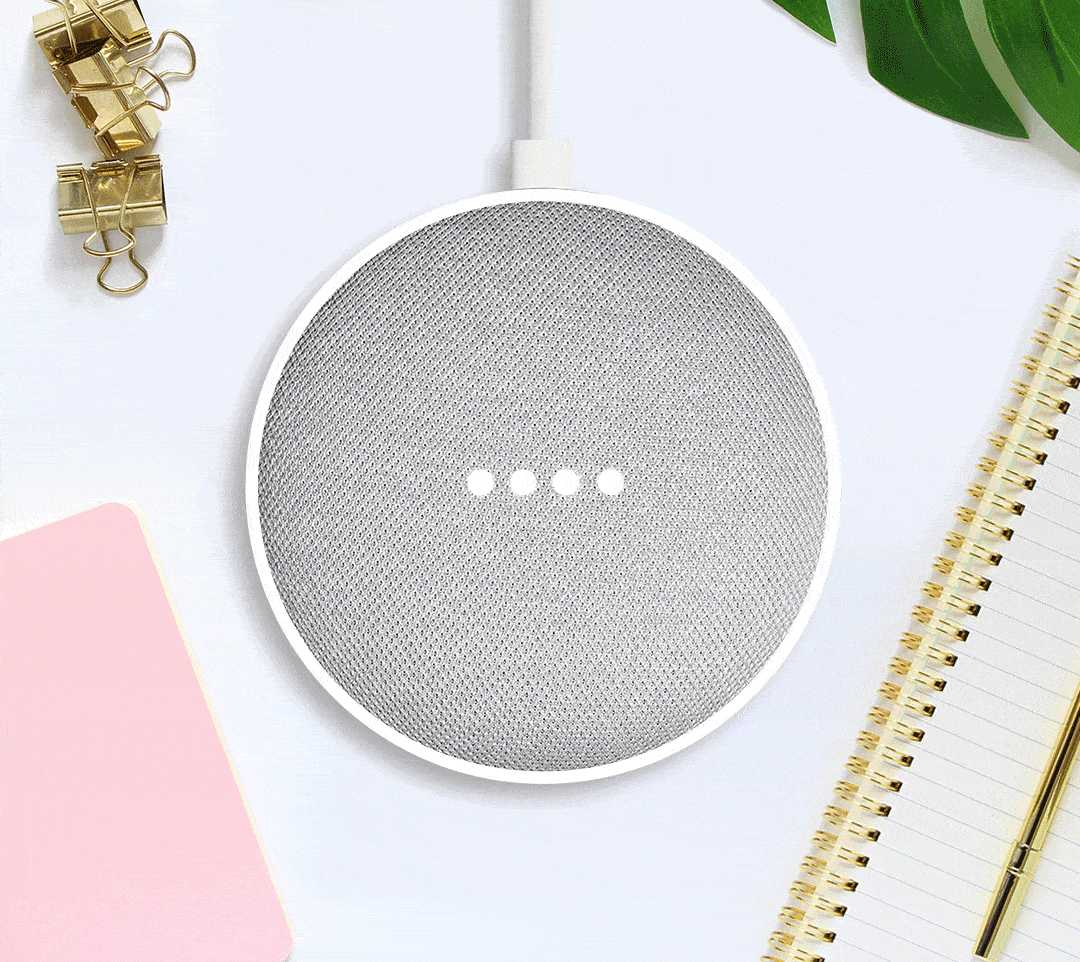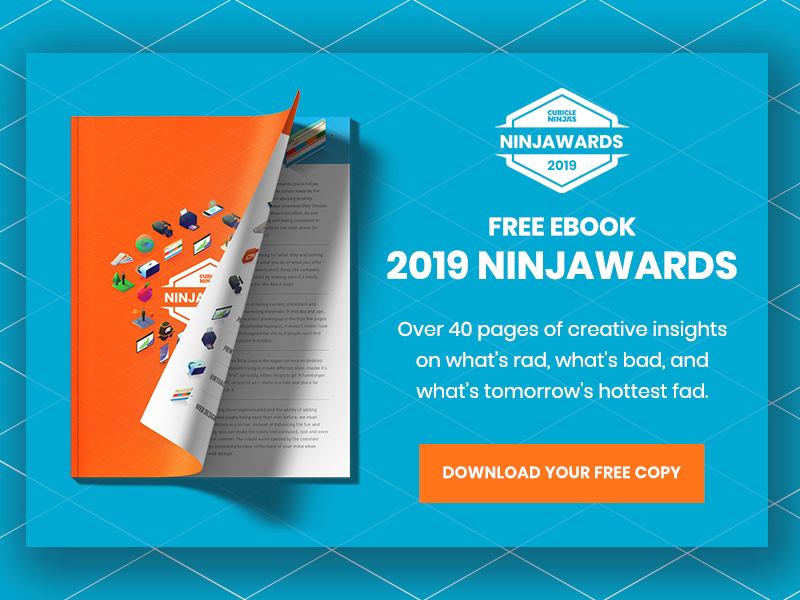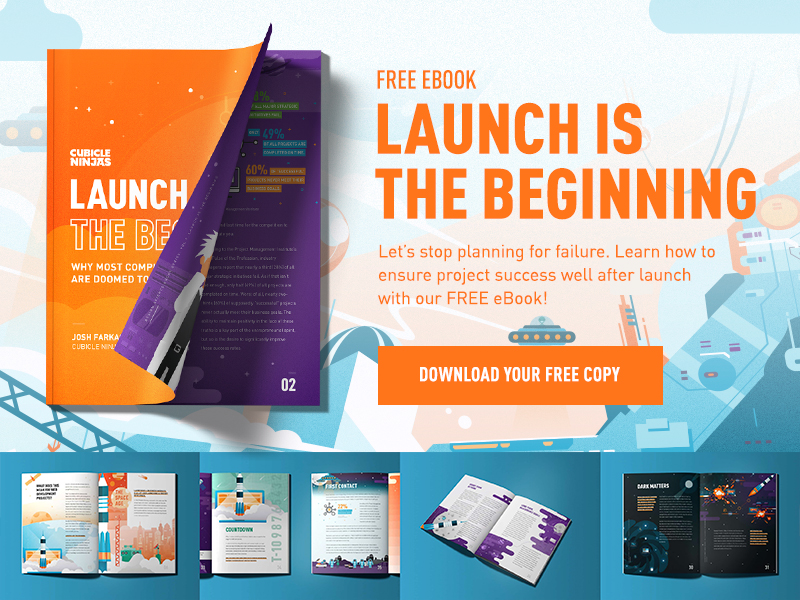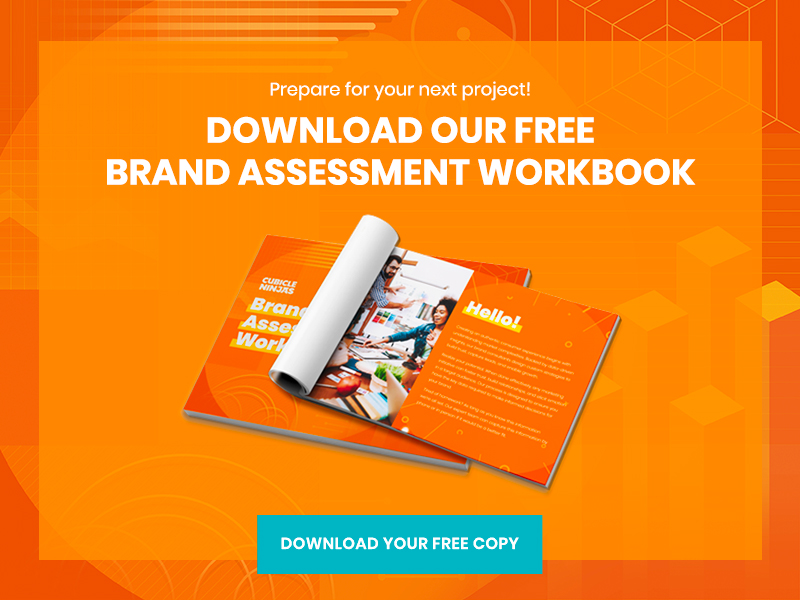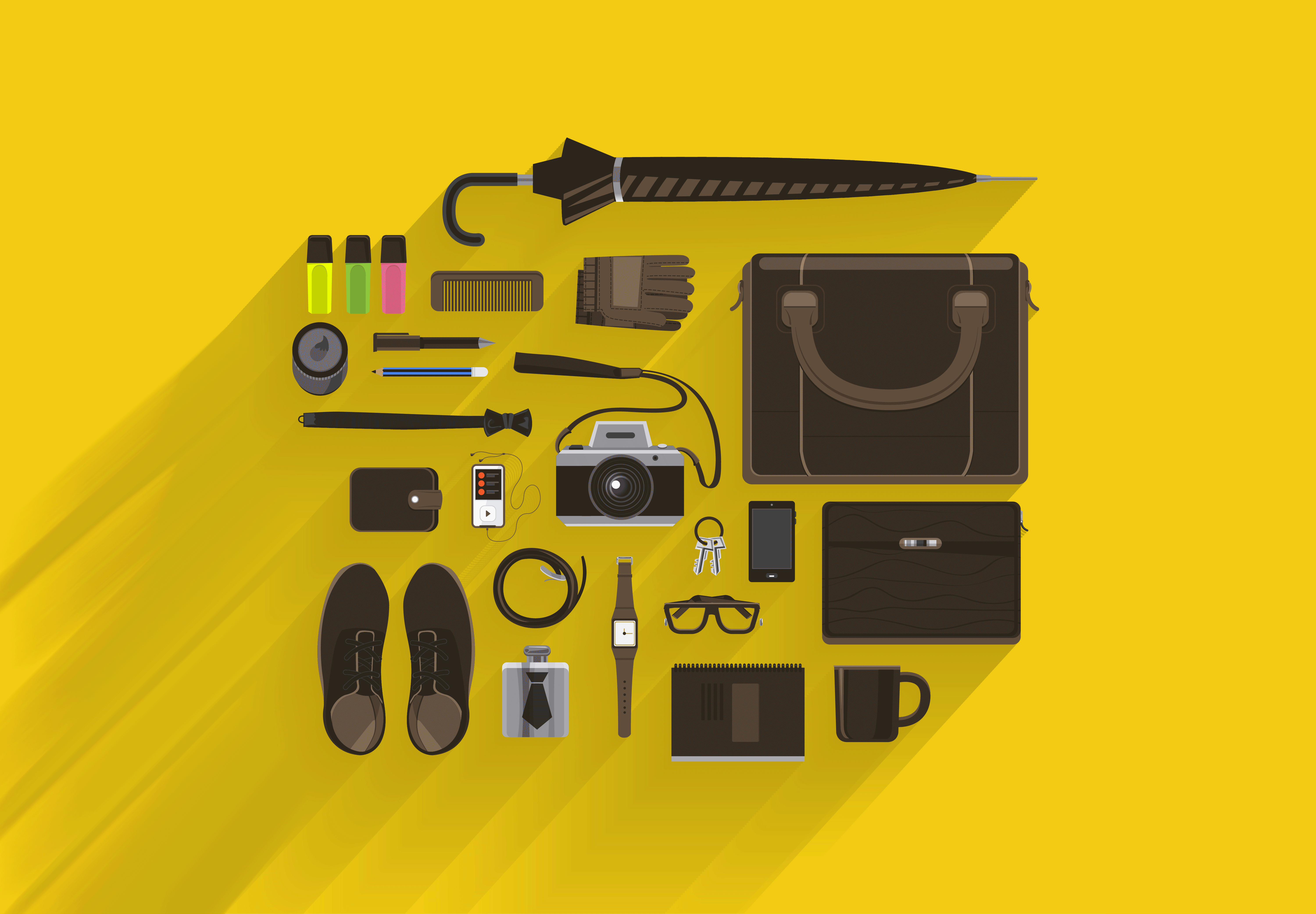
Being a designer can be tough.
The core concepts and design applications take years to learn, and often win over learning the business basics of the design industry. While this is wonderful, it leaves designers looking to make the break into the industry a bit…lost.
That’s why we created this list.
It is a point of view from a design agency’s end of how to get hired. Honest, unfiltered, and maybe even a bit ranty. But hopefully helpful too.
* And if you think some of these items are too crazy to be useful, everything on this list is pulled from a real world example. We have been burped on, cursed at, and even had mom ask if they could be in on the interview. We said no.
Do This.
Here are five things you need to do very well. Do these, get a job. That simple.
- Your Portfolio
Do create and include a link to your awesome portfolio. - Your Resume
Do create a resume that clearly shows how you are qualified for the position. - Your Email Application
Do send a short and friendly email addressing all requested information. - Your Responses
Do promptly respond with three times that would work for you, and a phone or video chat line that you can have a private, clear conversation on. - Your Virtual and In-Person Interview(s)
Do directly answer questions, show interest in the role, and provide context to your process behind the creation of your work.
Don’t Do This.
And now, appropriately enough, is a list of resume and interview boo-boo’s.
Like many things in life, the ways to gloriously screw up outweigh the victory dances by an exponential amount. But in short: if you receive a request for an interview the job is yours to lose. No pressure.
Why? The application process is designed to screen that you do good work first, but secretly, everyone is discussing whether or not you would be a good person to work with in the long term. You may be a brilliant creative visionary, but if you can’t hold a conversation with another human that talent is wasted. Interviews have multiple stages to gather more data about you. There are discussions in different contexts, often with different people, to see if your responses change. All of them are architected to see any potential obstacles you may bring to the table outside of your design talents.
While this list is much longer, in many ways it is more important. These are the things that could lose you that dream job.
Designer Resume
- Don’t forget the resume. It is important.
- Don’t apply if you don’t have an online portfolio.
- Don’t send along a Word resume. PDFs are better.
- Don’t ignore proofreading. Spelling mistakes, grammar issues, or broken contact information are common.
- Don’t list computer operating system as software skills. This can only hurt you.
- Don’t include your personal social media profiles. Employers probably will use your email, not Facebook. Do include professional social media profiles.
- Don’t get too granular in your work history. Listing individual tasks implies that is all you did.
- Don’t list every job you’ve ever had in your work history. If it is over 5 then start editing.
- Don’t have large gaps or consistent short tenures. Both are warning signs that you’re unreliable.
- Don’t list skills or software that no longer exists. Being able to use a Stat Camera or Netscape Navigator is cool, but not beneficial.
- Don’t note your proficiency in software that has no possible application to the job. You may be the king of Habbo Hotel, but an employer (probably) doesn’t care.
- Don’t credit yourself with 100% mastery of a program unless you have nothing else to learn.
- Don’t expect your education to carry you. Most people applying have a Bachelor’s degree, but your portfolio is all that matters.
- Don’t be lazy. The design of everything you share should be doted over, including your resume.
- Don’t use grunge fonts in your resume.
- Don’t put a skull, horse, or flower on your resume.
- Don’t swear in your resume.
- Don’t cover your resume with pictures of yourself.
Designer Application
- Don’t walk in to the place of business or call in order to apply. Follow the path the employer provides.
- Don’t misspell the name of the company. This happens with 1 out of 3 applications.
- Don’t forget to edit. Less is more.
- Don’t say “I’m interested in applying for…”. I can guess that part. Say why you’d be perfect fit.
- Don’t treat this like a text message. Use sentences.
- Don’t write a novel. HR is seeing hundreds of applicants per position, so be brief and yet stand out.
- Don’t forget to share your portfolio.
- Don’t be over cutesy in your cover letter.
- Don’t describe yourself as eclectic, drama queen, colorful, unique, artistic, or world traveler.
- Don’t go overboard on adjectives about yourself. Anyone can say they’re talented, visionary, creative, or artistic, but not all can show it.
- Don’t send instructions. If you want me to rename the zpp to zip, I won’t.
- Don’t embed your portfolio in an email as images.
- Don’t call design work your art.
- Don’t send follow-up emails.
- Don’t apply multiple times.
- Don’t call.
- Don’t complain about anything.
- Don’t give excuses about your work or blame others.
- Don’t apply with a non-professional email address or email avatar. CrazySexyBro2004@me.com need not apply.
- Don’t send a fashion portfolio, 3D portfolio, photography portfolio,or illustration portfolio to a graphic design job.
- Don’t beg.
- Don’t forget your cover letter.
- Don’t hide your website link only in your resume.
- Don’t sent a 10MB portfolio attachment.
- Don’t avoid answering the questions asked in the job post.
- Don’t hide your salary requirements.
- Don’t forget to spell check.
- Don’t be a recruiter.
Designer Portfolio
- Don’t apply if you don’t have a portfolio that is ready for review right now.
- Don’t have a coming soon element on your portfolio. Include it or remove it.
- Don’t have two pieces in your portfolio. Fill that portfolio with more than 10 pieces.
- Don’t only have one style. Diversify.
- Don’t only design for one medium. Diversify.
- Don’t only design for one type of industry. Diversify.
- Don’t have a WIX portfolio, Weebly portfolio, Flash portfolio, Flickr gallery, or Facebook portfolio.
- Don’t autoplay music on your portfolio.
- Don’t forget to edit. Each piece should be compelling.
- Don’t forget to save some new work for the in person interview.
- Don’t only bring in an iPad to your interview to showcase your work.
- Don’t include illustration unless it is used in context of graphic design.
- Don’t have ads on your page.
- Don’t include pieces with nudity or violence in your portfolio.
- Don’t be lazy.
Work that we’ve seen too much in a portfolio and never want to see again
- Badly executed illustrations of any kind. If you can’t draw, don’t.
- Band logos, flyers, or websites
- Skateboard logos, flyers, or websites
- Club logos, flyers, or websites
- Coffee company logos, flyers, or websites
- Weekly coupon flyer advertisements
When you receive an email to schedule an interview
- Don’t sound bored.
- Don’t act like this email was a preordained conclusion.
- Don’t inject drama into the conversation.
- Don’t ask who the company is, what the position is, or when you’re looking to hire.
- Don’t ask to reschedule, unless you or your family is on fire.
- Don’t beg for a new interview if you miss the old.
- Don’t respond to this email more than 48 hours after being sent.
- Don’t call to discuss next steps.
Phone Interviews
- Don’t go in clueless about the job, company, or the interviewer.
- Don’t use a bad phone line.
- Don’t accept a call while in a crowded, noisy place.
- Don’t talk while driving, catching a train, windsurfing, or any other distracting activity.
- Don’t let it go to voicemail.
- Don’t have a jerky, insulting, or potentially offensive voicemail.
- Don’t answer the phone like a radio station DJ.
- Don’t ask how long this is going to take.
- Don’t ramble off topic.
- Don’t forget it’s an interview and everyone you talk to is likely your coworker.
- Don’t repeat yourself more than 3 times. Share new info.
- Don’t say you want the job to pay off debts.
- Don’t talk bad about your last job.
- Don’t talk bad about your last boss.
- Don’t talk bad about your last position, especially if it is what you’re applying for.
- Don’t act confused when you’re asked tough questions.
- Don’t ignore questions. Answer them.
- Don’t say “as I said”.
- Don’t say your friends and family love you.
- Don’t say “I don’t know”, ever.
- Don’t burp into the phone.
- Don’t ask to work from home.
- Don’t demean your significant other or friends.
- Don’t say you want a job because no one has ever allowed you to be creative before.
- Don’t give recommendations on how the company could do better work. The fact that projects get done at all under their heavy set of constraints is, often, a miracle.
- Don’t flip out. Repeating “Oh my God!”, “I have no chance”, and “I really blew it!” under your breath during an interview. Please. Everything will be okay, and showing a melt down on the first date is spooky.
Questions.
Interrogative sentences that may be used against you.
Many designers are so excited about the concept of the interview they forget that there will be questions. We’ll probably ask some. Please don’t be surprised.
Here are a few questions that you should be prepared for. We’ve even added in why we ask them, so you can better understand the thinking and ideal response. And for the LOL’s we’ve added in some of our absolute favorite responses from real humans over the years.
What do you know about the position you applied for?
Why is this asked?
To see if you’re doing your homework and not merely spamming job boards.
How do you answer this well?
Read the job description, scour the website, and do research.
How do you answer this badly?
Stumble or give the obviously wrong answer. Those that don’t research don’t care.
Our favorite answer so far?
“I read the position description, but I didn’t really understand it.” Then why apply?
What is good design?
Why is this asked?
To see if you can make pretty words.
How do you answer this well?
Practice talking passionately about what you personally love about design.
How do you answer this badly?
Only talk about design trends, work you hate to do, software, or about your love of ‘art’ in a pretentious manner.
Our favorite answer so far?
“Anything that allows me to express myself.” Nope, that is art. Design is different.
What is your process?
Why is this asked?
To understand how logically you approach your work.
How do you answer this well?
Give a clear, step-by-step response. There is no right answer here.
How do you answer this badly?
Be unable to articulate this key part of your work.
What is the worst case scenario on a project? How would you handle it?
Why is this asked?
To see what makes you scared, and then seeing how quickly you can come to a solution.
How do you answer this well?
By answering honestly.
How do you answer this badly?
Freak out. If the mere thought of a worst case scenario brings you down then the reality will be much worse. Lying is also a bad idea. If you can’t express a weakness, odds are you can’t confront that weakness.
Our favorite answer so far?
“If I had to work on a project I didn’t like.” Yup.
What did you love / dislike about your last job?
Why is this asked?
To understand why you’re changing careers. If we can spot that this same problem will occur in our job, we won’t hire you to save us both frustration.
How do you answer this well?
Be honest, without demeaning the job, work, or your peers, expressing a sincere desire for new challenges.
How do you answer this badly?
Talk badly about your last job or the work in it. You can express what you loved or disliked without venom. This is a character question, as any negative response reflects more on you than the position.
Our favorite answer so far?
“I worked at a bar, so I liked grabbing free drinks.” You are applying for a job by bragging about stealing. Amazing.
What kind of responsibilities would you like to avoid?
Why is this asked?
To gauge where you’re comfort level lies.
How do you answer this well?
Be honest. This is asked to see if there may be any conflicts, but we don’t want to place you in a role that asks you to do something you hate.
How do you answer this badly?
Not being able to answer. All questions should have an answer, otherwise you look indecisive.
Why did you leave your last job?
Why is this asked?
People often leave jobs for the same reasons.
How do you answer this well?
Show gratitude for your time there but express a desire to move beyond the challenges.
How do you answer this badly?
Showing a past history of rash decisions is a concern for an employer. By having an illogical answer, too many short job changes, or constant movements in career/industry, you may lose this job.
What was the last new thing you learned?
Why is this asked?
Our industry is one that requires passionate self-learners.
How do you answer this well?
Share something awesome you’re tinkering with.
How do you answer this badly?
Have no answer. Act confused. Mention something obvious. You’re only as good as the last thing you’ve created.
Our favorite answer so far?
“Photoshop.” You learned the whole Photoshop?
What are your strengths / weaknesses?
Why is this asked?
To see if you know them.
How do you answer this well?
Give an honest appraisal of you. There should be equal weight to both categories. We often don’t care what these are, just that a person is able to assess them and communicate them like an adult.
How do you answer this badly?
Act surprised by the question. Say you have no weaknesses. Say you’re only weakness is being a perfectionist. Get flustered or emotional about needing to communicate them.
Where do you see yourself 5 / 10 years from now?
Why is this asked?
To see if you’re thinking. People not thinking is very common.
How do you answer this well?
Be optimistic and bold in your ambitions.
How do you answer this badly?
Have no answers. Say that you’ll be in another career, state, or country. Say that you want to be in charge, which is bad if you’re only excited for power.
Our favorite answer so far?
“Management.” Having aspirations of this is wonderful, but not a benefit for a design position.
What is your dream job?
Why is this asked?
To hear what an ideal role is.
How do you answer this well?
Answer about the qualities of the role or work culture.
How do you answer this badly?
Say that you don’t have one. Or give an answer that shows you dislike helping clients.
Our favorite answer so far?
“A race car driver.” We had to agree that this would be pretty awesome.
What is your greatest accomplishment?
Why is this asked?
This tells more about your ambition that any other question.
How do you answer this well?
Have it be recent and unique and preferably related to your job.
How do you answer this badly?
Having a generic response that doesn’t indicate the reason it is meaningful to you. Saying “I graduated college” is the most common answer, but this can be a negative if not properly explained. It can look like others set your goals for you. So saying “I was the first in my family to graduate college” or “I graduated college while working 3 jobs” tells the story of someone who overcame obstacles to reach their goal.
Having a weak accomplishment be the highlight is also a concern. Being proud of visiting a place for example isn’t something you did, it was something you paid to do. Context is key here.
What is your next greatest accomplishment?
Why is this asked?
See if you’re ambitious and planning for the next great thing.
How do you answer this well?
The best answer is to mention a project you’re working on now.
How do you answer this badly?
Have none. Worse yet, to answer to get married, have a family, or buy a house. Life goals are different than professional accomplishments.
Our favorite answer so far?
“Getting this job.” We have a funny one over here…
Tell me about yourself?
Why is this asked?
To give a forum to share anything about you we didn’t cover.
How do you answer this well?
Just be you. This is an easy win.
How do you answer this badly?
Mention anything that you shouldn’t in an intro conversation. Recommended to stay away from politics, dislikes, and religious beliefs.
What are your salary expectations?
Why is this asked?
We need to know what salary you’re looking for.
How do you answer this well?
Be prepared with a number. If you feel it is necessary, provide a bit of context to how you came to that valuation. The key is directness and brevity. If you’re unsure and really want the job, it is okay to say that for the right role you would be willing to negotiate.
How do you answer this badly?
Get awkward. Say “You tell me”. Give a range, because you should just ask for the last number. Ask for something too high, showing you haven’t done your research. Looking up something online and referencing it.
Our favorite answer so far?
Someone once answered this with a range. We offered them a job in this range and they called back asking for much more. They acted surprised when we retracted our offer. The moral of the story is that this number is used in the decision making process.
Do you have any questions for me?
Why is this asked?
To ensure you understand everything we’ve discussed and to show your interest.
How do you answer this well?
Ask a question or two. These can be about our design process, current projects, what next steps are, or a decision timeframe. Questions show interest.
How do you answer this badly?
Don’t ask a question. It isn’t a negative, but asking one is a positive.
